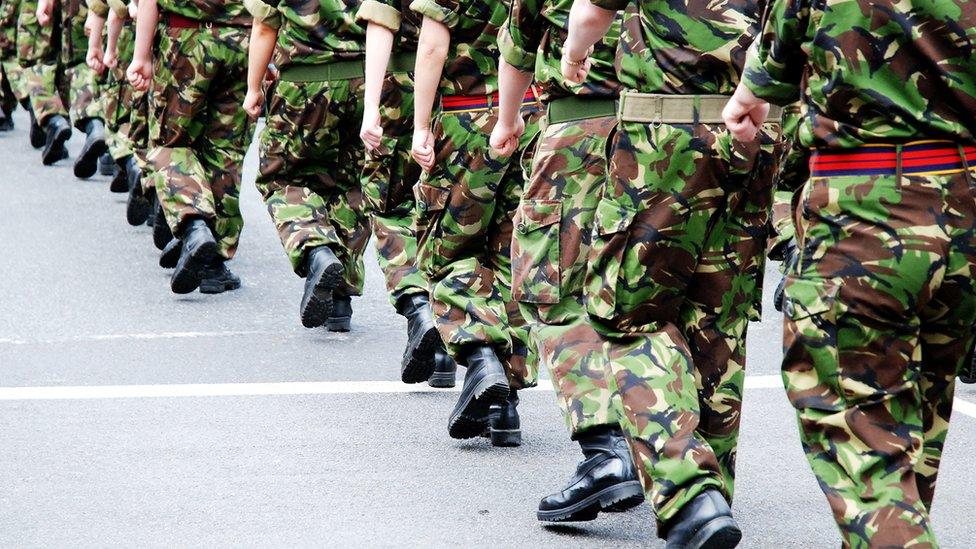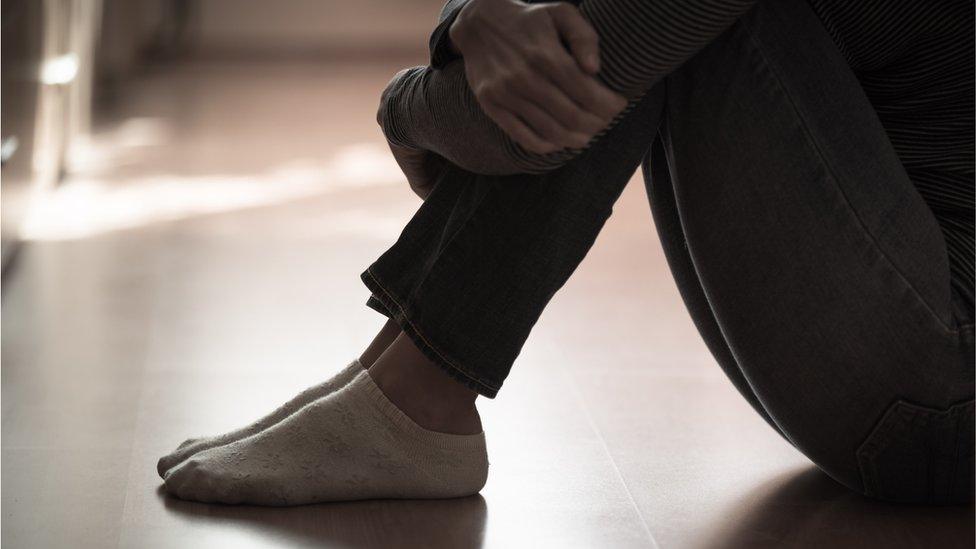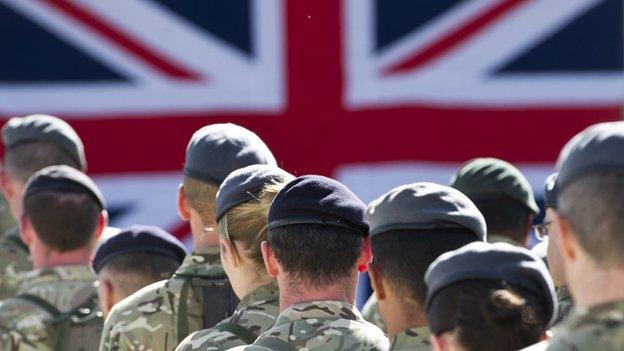Armed forces: Sexual offence claims 'not properly recorded'
- Published

At least 60 sexual offence allegations investigated by military service police in two years were not reported in official figures, the BBC has found.
Figures for 2017 and 2018 did not include alleged offences such as possessing indecent images of children or stalking involving fear of violence.
Human rights group Liberty says the Ministry of Defence is not recording allegations "properly or accurately".
The MoD said it was confident the right data was being published.
It comes as a review, external into inappropriate behaviour in the UK's armed forces found a "significant number" of military personnel have experienced "bullying, discrimination and harassment, including sexual".
The MoD says it has accepted all 36 of the report's recommendations to tackle the problems it uncovered.
The service police is made up of the Royal Military Police, Royal Navy Police and Royal Air Force Police.
For service personnel, sexual offences can be dealt with either in the civilian justice system or the service justice system - comprising service police, service prosecutors and courts martial.
Data on sexual offences investigated within the service justice system is published by the MoD in an annual sexual offences bulletin.
The department reported that a total of 288 service police investigations into alleged sexual offences took place in the years 2017 and 2018.
However, the figures did not include four types of sexual offences, including possession of extreme pornography, possession or creation of indecent images of children and stalking involving fear of violence.
Freedom of information requests made by Radio 4's File on 4 and the human rights organisation Liberty suggest at least 60 investigations into such types of alleged sexual offences were unreported in the official sexual offences bulletin.
Emma Norton, from Liberty, said the data was not reliable because the MoD was not recording it properly or accurately.
She said it was limited to offences found in the Sexual Offences Act of 2003.
"So we do not know, for example, how many offences of harassment, criminal harassment, revenge porn offences, possession of extreme pornography, we don't know anything about that kind of data," she said.
The MoD said decisions about which investigations into sexual offences to publish, along with their outcomes, were appropriate and plans were in place to restructure parts of the service police.
The BBC also spoke to a former service police officer who believes the internal justice system within the MoD lacks the experience to carry out investigations into sexual offences.

'I didn't see how I could continue'

Elizabeth - not her real name - is currently enlisted in the Army.
She told the BBC's File on 4 she had been the victim of a sexual assault by a soldier at a social event.
"Someone came behind me and grabbed my vagina. It was aggressive, it was shocking."
The military service police took over the investigation and the alleged assailant was later charged.
At court martial he disputed Elizabeth's account and was found not guilty after the jury deemed the evidence insufficient to convict.
At the conclusion of the court martial case, the judge said the military service police investigation had been poorly handled - and that basic errors, such as not interviewing potential witnesses and the sub-standard collection of evidence, may have contributed to the acquittal.
Elizabeth said: "There was a period of time where I didn't see how I could continue to serve in the Army, because I felt like, why am I going to go on operations and risk my life for the Army if they weren't going to support me at this time when it was really difficult."

Frank - not his real name - served for many years in the military service police and claims they are not fit for purpose when investigating serious crimes like sexual offences, in part because of a lack of experience in such investigations.
"It's not in the psyche of military police officers to say, 'Can you help me here?'" Frank said.
"They will just batter on and make mistakes."
The MoD says there are agreed principles for determining whether civilian or service police should investigate a crime.
It said service police meet the same standards as the civilian police because they are inspected by Her Majesty's Inspectorate of Constabularies and the Investigatory Powers Commission Office.
File on 4: Defenceless in the MoD? is broadcast on BBC Radio 4 on Tuesday at 20:00 BST.
You can also catch up on BBC Sounds.
- Published12 July 2015
